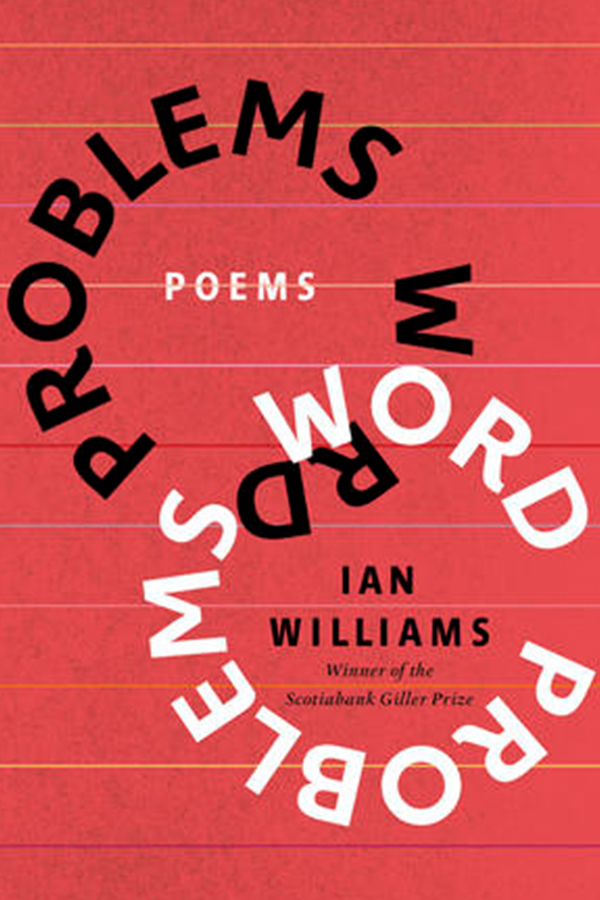Tackling systemic issues of racism through a language of powerful imagery, metaphor and dynamic use of the page, Ian Williams’ Word Problems is a game changer to the Canadian poetry scene. Breaking the linear convention of free form-atting, many of Williams’ poems wrap or bend around the page. In “I will never leave thee or forsake thee” the poem is two interlocking circles of text. Like a literary ouroboros, the poem loops in on itself. More than just a pleasant visual, the cyclical nature transforms the lines into a mantra of “I am alone whether I feel I am or not.” Williams uses this tool again with greater complexity in “Where are you,” where three circles interlock with horizontal lines in the stanza, creating poems within the poem and mantras that repeat in your head as the poem flows on, taking the reader with it. Shifting from circular shapes, poems with horizontal and vertical lines, digital messaging boxes, sheet music bars, a fingerprint, and a grid of the word “white” amid a few appearances of the letter “I,” you are kept on your toes as you turn the page, not only to read but to visually navigate the collection.

This experiential formatting also allows for very complex readings of the work. The two sections of the book have a rolling script across the top or the sides, which are a poem in themselves, while also framing each page of poetry. This added layer of text allows the reader to read the two sprawling poems in connection with each other, in connection to the A and B section of the book, or in relation to what is currently on the page, packing Word Problems with text interpretation.
The text itself also has a refreshingly casual and often uncertain diction to many of the poems. “Do you know everyone you know by name?” opens with “Stuff be happening to me in the future already,” but the informality is not to be mistaken as anything but artistically deliberate. The casual diction really supports the conversational tone of Williams’ poetry and gives it a great malleability. By not taking itself too seriously, the direction of any given poem can twist and change suddenly, as in “It is possible to move on without moving forward,” where Williams writes, “suppose being white in most spaces would be easier than being yourself by spaces here I mean cases.” The easy flow of the poems allows Williams to create fast-paced, seamless transitions within a piece. Lines are often interrupted by thoughts, other lines (in the case of vertical and circular lines cutting across horizontal lines), and different speakers without any use of quotation marks. Despite the suddenness of these changes, the tone and response of the poem’s speakers makes these interruptions traceable without any confusion.
With its many dynamic elements, Word Problems left me with the feeling that I did not read the collection but that it read to me, something that I have not felt before and which calls for multiple re-reads in the future.
Bios
Jordan Prato
Born in Toronto and raised in the sticks of Tweed, Ontario, Jordan Prato is a Carleton University Alumni and school teacher. [updated November 2023]

